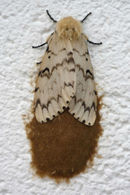Annual Review of Entomology (2016) 61, 335-352
From Pestinfo-Wiki
 | Selected publication you are invited to contribute to the discussion section (above tab) |
Eradication of invading insect populations: From concepts to applications
Annual Review of Entomology 61, 335-352
Abstract: Eradication is the deliberate elimination of a species from an area. Given that international quarantine measures can never be 100% effective, surveillance for newly arrived populations of nonnative species coupled with their eradication represents an important strategy for excluding potentially damaging insect species. Historically, eradication efforts have not always been successful and have sometimes been met with public opposition. But new developments in our understanding of the dynamics of low-density populations, the availability of highly effective treatment tactics, and bioeconomic analyses of eradication strategies offer new opportunities for developing more effective surveillance and eradication programs. A key component that connects these new developments is the harnessing of Allee effects, which naturally promote localized species extinction. Here we review these developments and suggest how research might enhance eradication strategies.
(The abstract is excluded from the Creative Commons licence and has been copied with permission by the publisher.)
Link to article at publishers website
Database assignments for author(s): Andrew M. Liebhold, Patrick C. Tobin, David Maxwell Suckling, Deborah G. McCullough
Research topic(s) for pests/diseases/weeds:
control - general
Pest and/or beneficial records:
| Beneficial | Pest/Disease/Weed | Crop/Product | Country | Quarant. |
|---|